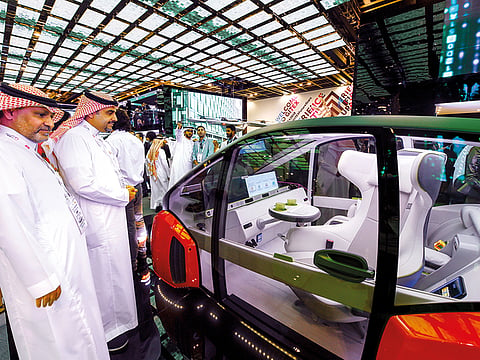UAE to be ready for mass IoT adoption by 2020
Etisalat sees growth opportunities in internet of things business

Dubai: Etisalat sees growth opportunities in the Internet of Things (IoT), as the UAE is adopting the emerging technology very fast, according to a company executive.
IoT refers to the growing network of computing devices embedded in everyday objects, which enables them to send and receive data over the internet. These devices can include clocks, cameras and home security devices.
“Our IoT strategy is to offer end-to-end solutions for businesses and governments for smart buildings, smart city, vehicles and workers,” Alberto Araque, vice-president for internet of things and digital payment at Etisalat Digital, told Gulf News.
With IoT, he said that buildings can save between 20 per cent and 40 per cent of electricity.
“At Adnoc petrol stations, we are providing safety, security and parking sensors with our IoT solutions. The business model of IoT is happening globally but the consumer is a little behind in adoption. The market is evolving very fast and by 2020, the UAE market will be ready for mass adoption,” he said.
According to Araque, Etisalat is ready for these services and has the ability to connect smart devices in the home through narrow-band IoT networks.
“We are the first in the region to have upgraded our network to LTE-M and narrowband technology,” he said.
LTE-M is the industry term for low power, wide area (LPWA) technology responsible for the rise in IoT-only network technology.
“We provide the networks and the platforms that are needed to make these IoT solutions a reality. On the consumer side, we have displayed connected fridges and washing machines at our stand. With IoT, the business model can be changed. Instead of a customer buying a fridge or a washing machine, we can sell it to a customer as a pay-per-use model,” he said.
Many consumer electronics brands have demonstrated the IoT capabilities of their home appliances in other regions.
“We are working with Ministry of Interior in the UAE to install fire alarms with all the sensors in all the villas in the UAE. We have already installed more than 1,000 villas with fire alarms and our expectation is to install 100,000 villas with the alarms within three years,” he said.
Totally, he said that there are 400,000 villas in the UAE and the fire alarms should be installed within 10 years.
“In real time, we will know the difference between a real and false fire alarm by applying AI. Understanding the type of fire alarms, we will have 120 seconds to alert the Civil Defence department,” he said.


